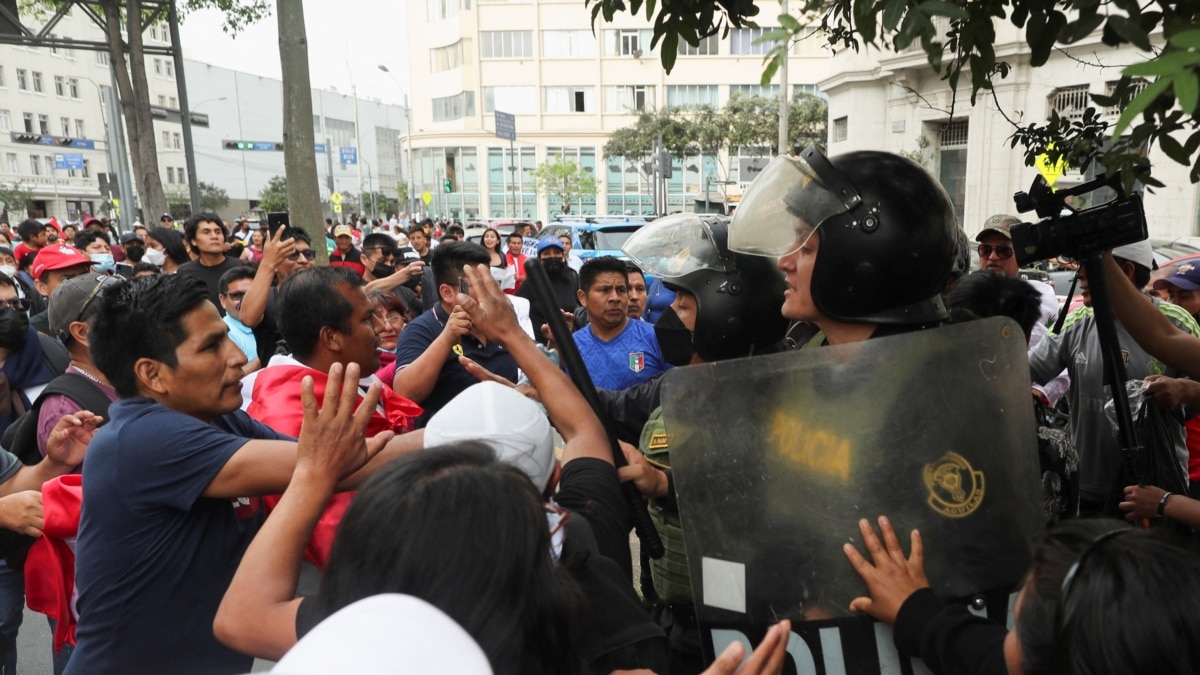The state of human rights in Latin America is concerning, and some that were considered achieved or on track are in decline, while there are enormous challenges, said César Muñoz, principal investigator for Human Rights Watch, in a recent interview with the voice of america
“I think in Latin America you can see that where there are more human rights problems is where democratic institutions are weaker. I believe there is a correlation between institutional strength, especially the judicial system, and the defense of human rights,” said the expert.
“In places where there is no judicial independence, where the press is persecuted, that’s where there will be more violations of rights because there is no one to defend the people who suffer these abuses. That’s the difference,” he added.
The fundamental rights and freedoms that every person should enjoy regardless of gender, sexual orientation, religion, country of residence or ethnicity are universal and range from the right to freedom of expression, to vote and to choose one’s representatives, the right to life, personal safety, the right to health, education and the right to information, Muñoz said.
Human rights also include the right to have a government governed by principles of transparency, to have access to adequate information, gender equality, security and more, he added.
For this he considers it “extremely worrying” when a government begins to attack the judicial system or freedom of the press because that is the first step in a deterioration that could be very serious in the democratic health of the country and in the defense of human rights, he said.
Freedom of expression and of the press, having a fair trial or due legal process, being able to vote, having clean and fair elections, having access to truthful information, are some of the rights that have been violated in recent years in the region, Munoz said .
“We are defending the freedoms we thought were already largely won,” he said.
And this situation occurs in a context of economic crisis and social unrest. A third of Latin Americans, more than 200 million people, live in poverty, according to the United Nations, and the region is considered the most unequal in the world. Added to this is the political polarization achieved by several countries, fueled by the disinformation that proliferates on social networks.
“This hurts all of us. It happens in all political signs and ideologies and in the end the debate is clouded because we cannot even agree on the facts, which prevents the dialogue and coexistence of the countries of the region, many of them,” Muñoz told VOA extension.
The researcher highlighted that this year’s elections took place in highly polarized contexts in Latin America, where there was even doubt that there would be an orderly transition of power. “This is unheard of. We haven’t been in this situation for decades, in doubt whether the unelected candidate would accept defeat,” he said.
This year Colombia and Brazil held general elections and managed to make orderly transitions.
Now they have the challenge of demonstrating that democracy works and can produce good results in education, health, safety, environmental protection, which ultimately means defending human rights, says Muñoz.
The need for strong institutions
Democratic institutions that uphold the rule of law and defend the human rights of all without discrimination or restrictions are needed in Latin America and the Caribbean, and this institution building is a very slow process, Muñoz said.
“Here there are no shortcuts and it must come above all from the countries themselves, that is, there may be external collaborations, techniques, studies, experts, but there must be the will of the country, of its civil society, to do so. That energy really has to come from within,” she said.
In addition to these internal dynamics, it is “very important” that Latin American governments adopt coherent foreign policies in defense of human rights, “because it is very easy for a government of one ideology to criticize a government of the opposite ideology”.
“This is a call to the new presidents of Latin America to apply the same human rights standards to other countries, regardless of the ideology of the government, be it left or right. Human rights have no ideology,” she said.
Particular attention to the state of human rights in some countries
Muñoz believes that the situation of human rights in Cuba, Nicaragua and Venezuela should be watched with particular attention, where “there are continuous abuses against anyone who has a critical view of the government, where freedom of expression is punishable by prison”.
He also says the situation in Haiti is grave, a country experiencing one of its worst political, humanitarian and security crises; and is concerned for Mexico in the face of “the increase in the militarization of public security and the very serious reports of abuses by those forces”.
He makes special mention of the Venezuelan exodus which he says requires a collective response. “They are forced to leave their places of origin and a regional response to this challenge is needed. For example, the internationally recognized right to seek asylum must be respected and in many places we see that it is not being respected, even though it is an international right.”
Regarding Guatemala, he believes that the rule of law is being undermined, with prosecutions being brought against judges, prosecutors and journalists, while expressing concern about the situation in Bolivia, “where there is no independent judiciary and since the judiciary, the The country does not have an impartial actor who can give stability to the political system and allow for a true defense of human rights”.
In Honduras, he says, there are positive changes that could strengthen its justice system, but it all depends on whether a Supreme Court is actually elected on the merits.
Connect with the Voice of America! Subscribe to our channel Youtube and activate notifications, or follow us on social networks: Facebook, Chirping And Instagram.


